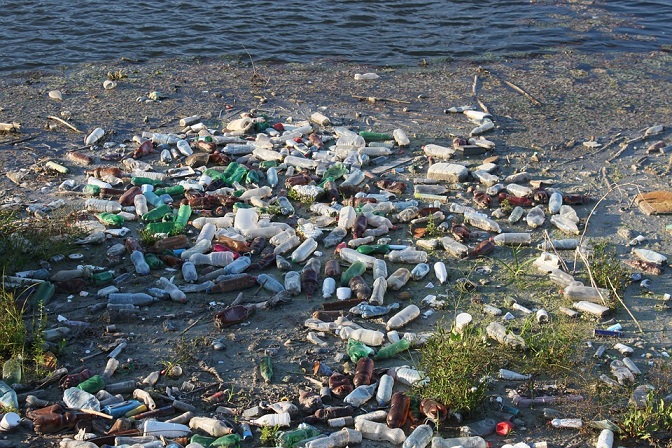 According to the World Health Organisation (WHO), water pollution is one of the biggest killers in the world, causing many waterborne diseases that are the cause of around 842,000 diarrhoeal disease deaths every year.
According to the World Health Organisation (WHO), water pollution is one of the biggest killers in the world, causing many waterborne diseases that are the cause of around 842,000 diarrhoeal disease deaths every year.
Waterborne diseases are the number cause of death in children under the age of five, especially in third-world countries, and unsanitary and unhygienic water is to blame.
A team at Bristol Robotics Laboratory have developed a tiny robot, based on the water boatman, an aquatic insect which feeds on algae and dead plants, which powers itself by swallowing dirty water. Both the ‘Row-bot’s’ movements and what it feeds on were based on the boatman, and it is hoped that it will one day play a major role in cleaning up the environment.
The mouth of the tiny robot opens so that it can drink the dirty water, which the passes into its ‘stomach’ which is actually a microbial fuel cell. The row-bot then closes it mouth and digests the nutrients, which are then converted to electricity by mechanisms in the stomach, mimicking the biology of the water boatman, which uses its mouth to suck in algae and fluid.
The prototype of the Row-bot is comprised of two systems, a “bio-inspired energy source” that allows the Row-bot to generate electricity, and a “bio-inspired actuation,” which allows the tiny robot to refuel itself and move without using all of the energy it has generated.
According to Jonathan Rossiter, professor of robotics at the Bristol University, “The work shows a crucial step in the development of autonomous robots capable of long-term self-power. Most robots require re-charging or refuelling, often requiring human involvement.”
[Source: wired.co.uk]
It is envisaged that the Row-bot will one day be able to swim around wherever it is needed, powering itself with self-generated electricity, autonomously and indefinitely.
Hemma Philamore, PhD student and co-author of the research said, “We anticipate that the Row-bot will be used in environmental clean-up operations of contaminants, such as oil spills and harmful algal bloom, and in long term autonomous environmental monitoring of hazardous environments, for example those hit by natural and man-made disasters.”
Get water coolers in London and free water dispenser trial. Get bottled water dispensers and mains fed water dispenser in London.





